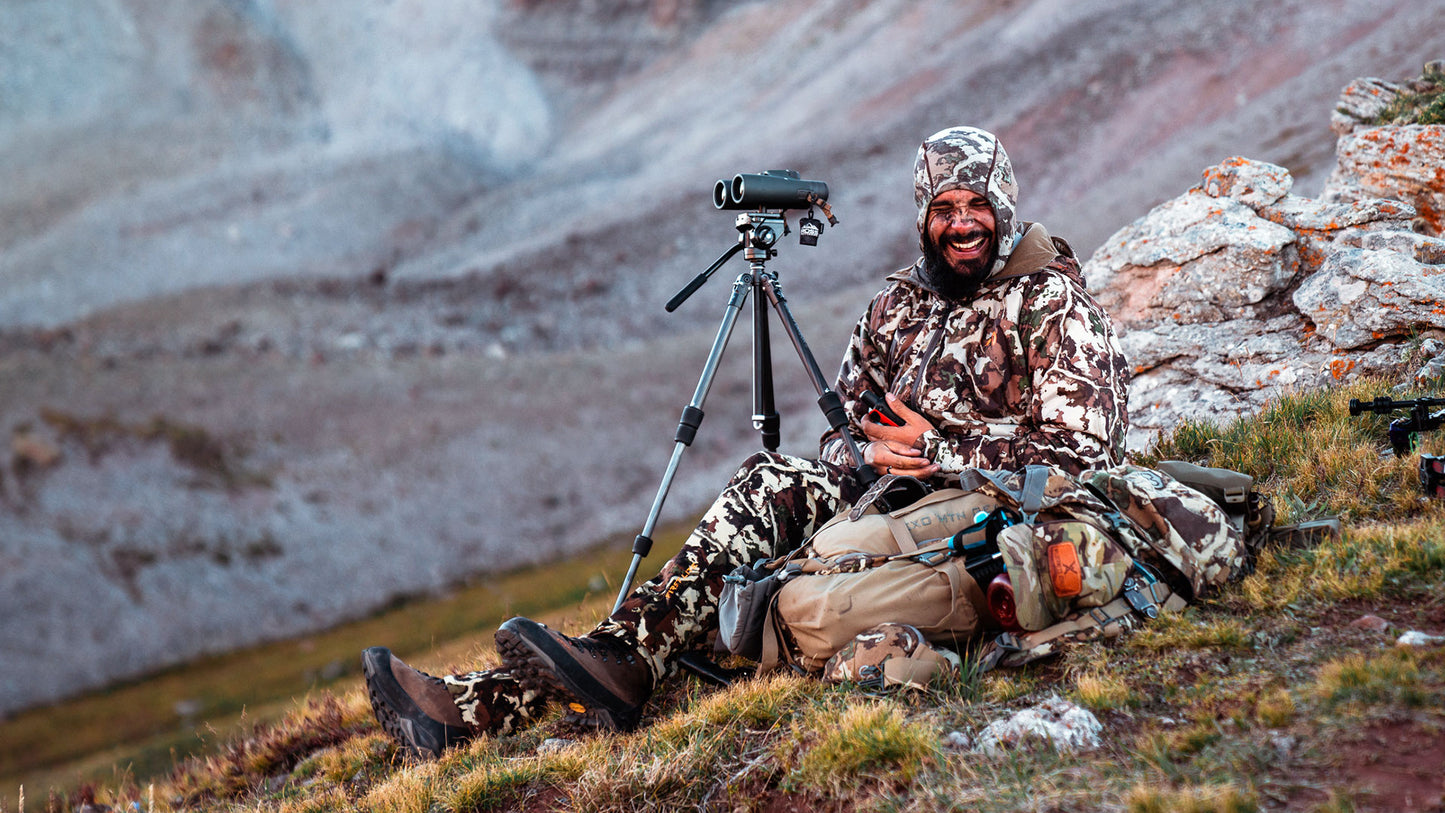
Do something that you love for a living and you’ll never work a day in your life. The idea of doing something that one truly loves as a career runs rampant. I get it. Why wouldn’t someone want to immerse themselves in their passion and get paid to do it? Seems like a win-win, right?.
Many folks want to take their passion for hunting and the outdoors and turn it into a career. Imagine sitting on a hillside glassing for mule deer “working.” If that sounds awesome to you, then more power to you. Go for it and make it happen. That said, I would like to layout some misconceptions and things to consider for those that are thinking about taking this path. Having personally transitioned to making a career out of hunting, these are things I have learned.

Ask Yourself Why
As someone who works in hunting media, I regularly get asked, "How do you do it?" I am happy to provide insight about that, however, there is a more important that should be answered first. That is the question of “Why?”
Why do YOU personally want to work in the hunting industry? Truly ask yourself that and be honest. You have to make sure you are making decisions for the right reasons. If that answer doesn’t go beyond “I love to hunt,” then you should reevaluate some things.
Working in the hunting industry, and more specifically hunting media, is much more than just loving to hunt. It’s about wanting to create, striving to educate others, and being a positive voice for hunting as a whole. Finding purpose will provide one with the fortitude required to stick with their dream when things get hard. And it will get hard. Without a driving purpose, you’ll fail, no questions asked. If you’re just trying to get on a pro staff or be a sponsored hunter, you’re probably doing things for the wrong reasons.
Pro Staff Doesn’t Mean Professional Hunter
Real quick, let’s touch on pro staff and sponsorship types of roles. It’s probably the most sought-after (and misunderstood) role in the hunting industry, especially with younger folks.
A big misconception is that "pro staff" means professional staff, which is incorrect. The "pro" generally stands for promotional. Folks that have a prominent following or influence and promote a product genuinely and naturally will fit in great here. Just because someone is on a pro staff, doesn’t mean they are a professional hunter. You’ve gotta be more than just a good hunter. You’ve gotta be the total package. These positions aren’t given up to just anyone, no matter how big of a buck they killed last year. While filling tags help elevate one’s status, gaining these positions goes way beyond that. It’s about working well with others, aligning with a brand’s values, and representing that brand in a positive light. Not everyone is going to fit with every brand.

"Hunting for a Living?"
So, remember when I painted the picture of someone glassing for mule deer and “working?” Dream job right? There is a bit more depth to that though — unless someone is a hunting guide, of course. Hunting guides truly are working as they try to find animals for their client. Aside from that, almost no one is getting paid to hunt. Especially in media, the person is getting paid for what they create from a hunt, not for hunting alone. While there is much work that happens in the field, the real work happens after they get home. It’s when they’re sitting in front of a computer editing articles, photos, and videos. People looking in from the outside don’t see the time spent at a desk and staring at a screen; they see the glamorous part, which is the finished product and adventurous lifestyle.
Personally, most mornings I’m up at 3:30 a.m. to start writing and editing. While I truly love to do these things, sometimes I chuckle to myself and say “dream job” when I’m tapping away at the keyboard. The hunt is indeed a necessary part, but someone isn’t getting cut a check for the bull elk they harvested. They are getting cut a check for the actual work that they did after the hunt.
Jobs in the Hunting Industry
When you think of working in the hunting industry, the most common vision is probably of those hunters that have their own show or big online following. Jobs in the hunting industry go much deeper than that, though, and many of these jobs fly under the radar.

Consider jobs like working in an archery shop and wrenching on bows all day. This is a very attainable position to gain. Sure, you won’t get the limelight you’d get from hosting your own show, but you’d be working in the hunting industry. How about customer service? Hunting companies will have people that answer the phone, respond to emails, and just handle communicating with customers. Again, this is a very attainable position. Marketing anyone? Hunting-focused companies need to sell products and good marketing is a huge component of that. Landing a marketing position like this would put you smack dab in the hunting industry. And speaking of products, a person could also invent their own specifically for hunting. Another great avenue into the hunting industry is working for a conservation or hunting advocacy group. With either of those jobs, you’ll not only be in the industry, but you’ll also be giving back with meaningful work.
I know these don’t sound like “sexy” jobs, but that’s the point. Working in the hunting industry gets put up on a pedestal, but in all reality, it’s just like any other industry out there.
You Make the Blueprint
So, how does one land their dream job and “hunt for a living?” There isn’t a set-in-stone path and there isn’t a “take these college courses and you’re in” approach. You make the path. You make the dream a reality. With that being said, there are a few things that can set you off in the right direction.

First off, one needs to recognize what their strengths are. Are you good at talking to people? Maybe you could be in customer service or start a podcast. Photography? You could photograph hunts or do product photography for brands. Find where you excel and let your strengths be your compass. Secondly, what are you passionate about? Just like finding your “why,” passion will be the fuel that will keep you going during those rocky moments along the way. For example, if you’re passionate about elk, maybe a career with someone like Rocky Mountain Elk Foundation protecting what you love would be the peas to your carrots.
Content creation is huge right now. If you’re into that, AWESOME! Just know that you’ve got a load of hard work in front of you, with likely no compensation for a stretch. When I first started writing articles, I never got paid. This is the story for most content creators. You are going to have to work hard creating, honing your skills, building relationships, and growing your reach before you can “hunt for a living.” And, after all of that, maybe you end up getting hired to work for a brand you love instead of being the next "hunting celebrity". So, on that note, be open-minded. Doors might open that you never knew existed.
Lastly, stay passionate, stay driven, and love what you do. If you’re good at what you do, good will follow. So hit the gas pedal and go.
Josh Kirchner is the author of the book, Becoming a Backpack Hunter, as well as the voice behind Dialed in Hunter, a blog that not only documents his own journey, but provides gear reviews, tips/tactics for western hunting, and encourages other hunters to chase and achieve their goals. Josh is a passionate bowhunter that has been hunting with his family since he was a small boy. When he is not chasing elk, deer, bear, and javelina through the diverse Arizona terrain, he is spending time with his wife, daughter, and two herding dogs.
